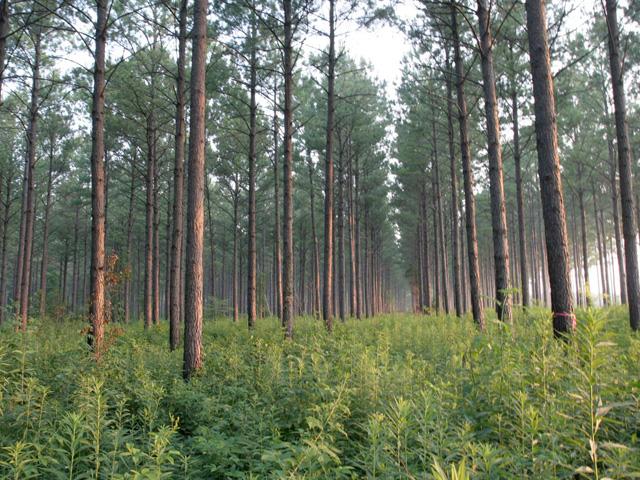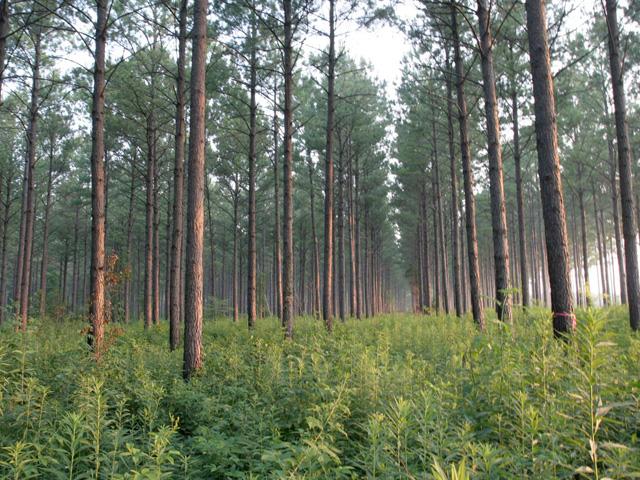Ag Policy Blog
Forest Service to Provide $1.13 Billion for Tree Planting Projects as USDA Touts Climate-Smart Programs
USDA's top leader is traveling from event to event this week and announcing new climate funding initiatives as he does so.
Agriculture Secretary Tom Vilsack will be in Cedar Rapids, Iowa, on Thursday to announce a $6 million local grant award by the U.S. Forest Service to plant trees as part of the city's continued recovery from a 2020 derecho that damaged more than 70% of the community's trees.
The announcement is part of a $1.13-billion group of 385 grants to plant trees across the country with USDA funding from the Inflation Reduction Act (IRA).
As USDA is rolling out more money from the IRA, House Republicans are trying to claw back at least some of the department's funding for climate projects in their annual appropriations bill that is still waiting on a vote by the full chamber.
CLIMATE-SMART COMMODITIES
On Wednesday, Vilsack was in Wisconsin where he celebrated the first year of the Partnership for Climate-Smart Commodities projects, a $3.1 billion initiative that has awarded 141 grants to various groups to increase on-farm practices that sequester carbon or reduce greenhouse-gas emissions in agriculture. Vilsack said the projects so far have enrolled 1 million acres in various practices.
The projects were set up to help de-risk the adoption of climate-smart practices and reward early adopters.
"It started as a voluntary, market-based incentive program because that's what farmers across the country asked us to do," Vilsack said.
While 1 million acres have signed up, the programs are set up to enroll as many as 25 million acres over the next three to five years, meaning enrollment will need to aggressively increase.
As the climate-smart programs develop, USDA also is starting to hold quarterly meetings with project partners to talk about enrollment, data collection and how practices are being implemented to reduce emissions.
P[L1] D[0x0] M[300x250] OOP[F] ADUNIT[] T[]
"Again, we will be able to tell folks what works and what doesn't work," he said.
The secretary also stressed the importance of ensuring the climate-smart projects include underserved farmers in rural and urban areas as well as small-scale operations. The secretary added that climate-smart agriculture was helping those smaller operations stay in business.
"We're really making a concerted message that we are open for business to producers large and small," Vilsack said.
Asked on a call with reporters about how climate change and environmental justice play in the next farm bill, Vilsack noted he was on a call with the president of the American Farm Bureau Federation and the National Farmer Union. The two organizations are meeting with leaders from European agricultural groups. "Without me prompting, (they) essentially commented about how grateful they were that the Agriculture Department was engaged in a voluntary, incentive-based, market driven climate-smart commodity initiative," Vilsack said, adding, "Both of them indicated they had received a number of expressions of interest from their European counterparts – an indication of how fortunate they felt the United States was in its approach."
Vilsack added the farm bill discussion needs to continue to support conservation, as well as local and regional food systems.
FORESTRY PROGRAM
For the tree-planting program, the U.S. Forest Service is awarding grants to plant trees in all 50 states to increase the benefits for "cooling city streets, improving air quality, and promoting food security, public health and safety," USDA stated. The new program, the Urban and Community Forestry Program is the only project in the federal government focusing on expanding tree-planting and forestry in urban areas, USDA stated.
The new program had 842 applications requesting $6.4 billion in funds, Vilsack noted, highlighting the popularity for communities looking to expand tree growth in their communities.
Beyond restoring trees that may have been damaged in storms, Vilsack pointed to work in the city of Detroit where as many as 25,000 residents are volunteering to help plant trees.
"We all know the benefit of trees in neighborhoods and parks, and median strips and playgrounds across the country. We know that tree canopy can certainly allow for a significant reduction of temperature."
More on USDA's climate-smart programs
"As Climate-Smart Projects Seek to Enroll Farmers, Additionality Question Still Unanswered," https://www.dtnpf.com/…
"New Initiative Connects Farmers, Soil Health and a Sustainable Marketplace Opportunity," https://www.dtnpf.com/…
Also see Oklahoma producer Jimmy Emmons talk about climate-smart projects:
Chris Clayton can be reached at Chris.Clayton@dtn.com
Follow him on X, formerly known as Twitter, @ChrisClaytonDTN
(c) Copyright 2023 DTN, LLC. All rights reserved.






Comments
To comment, please Log In or Join our Community .